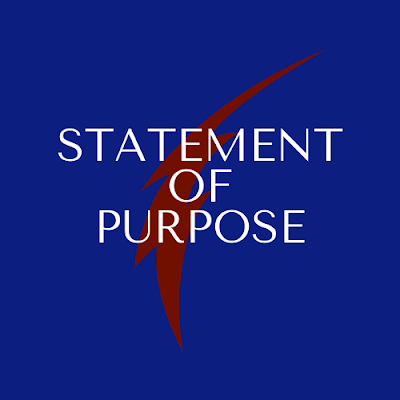Which European Country Teach in English?
Which European Country Teach in English?
If you want to study in English, you will naturally first
think of general English-speaking study destinations – the UK, US, Canada,
Ireland, Australia, New Zealand, and South Africa.
Many of these popular English-speaking study destinations
err on the expensive side, especially for international students. If you're
concerned about cost, or just like the idea of studying somewhere different,
read on for a selection of alternative destinations where you can study abroad
in English.
Europe
Fees are higher for non-EU students, but still comparatively
low compared to other popular study destinations. English-taught courses were
few and far between as recently as 2009, particularly at the undergraduate
level, but the number of English-taught undergraduate degrees available has
increased fifty-fold since then.
Germany
About 56 percent of Germany's population speaks English
(especially among the younger generation), and there are many programs
available for study in English, especially at the postgraduate level. If you
want to study at the undergraduate level, it is hard to find courses taught in
English.
There are no tuition fees for undergraduate degrees at
public universities in Germany, with the exception of universities in the state
of Baden-Württemberg, where non-EU students are now required to pay costs of
€3,000 (~US$3,360) per year. is required.
If you received your bachelor's degree in Germany, master's
degrees are also free, while PhD courses are also often either free or very low
cost. Private universities in Germany will charge tuition fees, but these are
often below the international average.
The
Netherlands
If you want to study in English in the Netherlands, you
won't have to struggle to communicate with the locals – 90 percent of Dutch
residents are English speakers. There's also no shortage of English-taught
courses - more than 2,000 are available, most of which are master's degrees.
The government agency Study in Holland has a study finder that will help you
find your perfect English-taught curriculum at any level of study.
Although tuition in the Netherlands is not free, fees are
much lower than average for English-speaking countries, especially if you are from
the EEA/Switzerland/Suriname, as you will pay €2,087 per year for most courses
in 2019/20. , If you are not from these locations, you will pay at least €6,000
(~US$6,700) per year depending on your subject and study level.
Austria
Teaching in Austria is mostly conducted in the country's
official language, German, but there are about 260 programs available in
English at various study levels - the Studyenwahl website has a search tool
that will allow you to learn more about what is taught partly or wholly in English.
Helps in finding courses.
This is one more country (73 percent) of English speakers.
Higher education is free for Austrian citizens and EU students. Students from Non-European
countries can pay €726.72 (~US$815) per semester.
Greece
About half of Greece's citizens can speak English. While
teaching at universities is mainly in Greek, there are also specialized study
programs in English available at both the undergraduate and postgraduate
levels. Again, tuition fees for domestic and EU students at the undergraduate
level at public universities are free, while students from non-EU countries
will pay around €1,500 (~US$1,700) per year, often including course textbooks.
.
Scotland
If you are an EU national interested in studying in the UK,
but not keen on higher tuition fees, you may prefer to consider Scotland, as
there is no tuition for students from Scotland or elsewhere in the EU There are
no fees (except for students in the rest of the UK).
Although Brexit may affect this, it has been confirmed that
from 2019/20 EU students starting a degree in Scotland will be able to study
for free for the duration of their course. Scotland is predominantly
English-speaking, but also has two recognized regional languages, Scottish
Gaelic and the Scots language.
Russia
Russia is another country that offers a wide range of
English-taught programs as well as 15,000 government scholarships aimed at
attracting more international students. However, there are very few English
speakers here, about five percent of the population (although this will vary by
region; cities like Moscow and St. Petersburg have higher proportions of
English speakers), so it's a good idea to learn some Native Russian to help
you.
Denmark
Although most teaching at Danish universities is conducted
in Danish, more than 700 internationally recognized programs are taught in
English, and 86 percent of the country's residents can speak English. You can
find study programs in English through the Study in Denmark website. Danish
universities are free to attend for all EU/EEA/Swiss students at all levels.
If you are from outside the EU/EEA, you will need to pay
fees, which cost an average of €6,000–16,000 per year (US$6,750–18,000).
Sweden
Another country with a large number of English speakers,
Swedish universities offer more than 860 programs in English. The university is
almost free for Swedish and citizens of EU countries. However, non-EU students
pay fees. These are determined by each university; You can expect to pay
between SEK80,000 and SEK190,000 (approximately US$8,600-20,500) per year
depending on your subject and degree level.
Finland
Finland is another destination worth studying abroad in
English. Finnish institutions offer over 400 courses in English, and there is
no tuition fee for EU students. Non-EU students pay tuition fees of
approximately €5,000–20,000 (~US$5,900–23,550) per year.
Again, many of the citizens (70%) of this country are
English language speakers. English language courses are more common in universities
of applied sciences and polytechnics, and only a tiny number of English-taught
courses are available at the bachelor's degree level at ordinary universities.
Norway
The only Nordic country that continues to offer free tuition
to all students (regardless of nationality), Norway offers a good range of
English-taught programs, primarily at the master's level, and most residents
know English.
The University of Oslo (the country's highest ranked
university in the QS World University Rankings® 2019 ranked 135) has a wide
range of English-taught programs at all study levels. You will still have to
pay a student welfare organization fee each semester, which typically does not
exceed NOK600 (~US$70).



Comments
Post a Comment